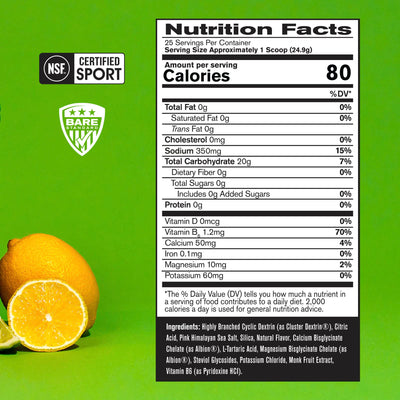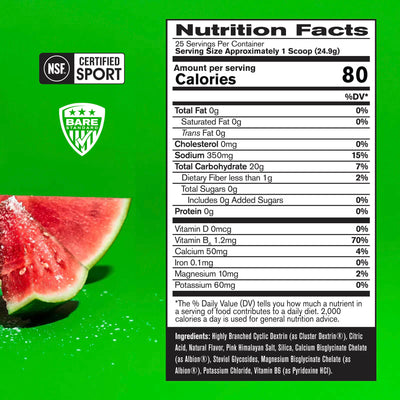The Ketogenic Diet: an Overview

The ketogenic diet has been around for a long time, and has long been used throughout medical history for the treatment of certain diseases. Over the past 10 or so years the fitness community has utilized it as an extremely effective diet for fat loss. The growing popularity of this diet has led to more and more people hearing about the benefits of ketosis, but unfortunately the definition of ketosis and the ketogenic diet has become a bit convoluted. Social media fitness personalities who have influence over the niche have unfortunately taken something similar to the ketogenic diet, and claimed they were following the diet. This has led to many followers and fitness enthusiasts attempting what they believe is the ketogenic diet, telling their friends about this awesome new fad, and spreading an incomplete version of the diet around. The truth about the ketogenic diet and the bodies state of ketosis, is that it is a very clear concise area. Your body is either in ketosis, or it is not. Before we talk about my experience with the diet and who it may benefit, let’s go over what the ketogenic diet actually is.
The ketogenic diet was most definitely unintentionally followed by many indigenous peoples over the course of history, but it poked its head into the publics eye around the early 1900’s in the United States as a way to treat epilepsy without medications. While it diminished from the scene as a treatment for epilepsy, it showed promise in treating other diseases such as some forms of cancer. The ketogenic diet is an extremely low carbohydrate, moderate protein, and high fat diet. (We will touch on some general guidelines later in the article, but for anyone planning on trying this diet out, I highly recommend doing research on your own prior to the diet.) In the beginning of the diet, the body transitions from utilizing carbohydrates and sugars for fuel and begins using fat and ketones for fuel. The first 4-7 days are a rough transitioning period for most people, because they have never experienced that amount of time without using carbohydrates for fuel. Many people experience headaches, fatigue, irritability, and many more symptoms. As unfortunate as these symptoms are they are normal. For years upon years your body has used sugars for fuel. Your body is without a doubt dependent on them, and the drastic removal of them from your diet is definitely a difficult transitioning period. Your glycogen stores begin to dwindle, and you will notice a significant drop in weight the first few days. This weight is simply water that was stored in your glycogen. For every gram of glycogen stored, there is 2.7 grams of water that accompanies it. After glycogen stores are drained the body begins producing ketones. This is where most people hit their stride in the diet. Mental clarity increases dramatically, cravings and overall hunger becomes less intense, and the body is in a complete state of ketosis.
Here is where doing your research now comes in to play. There are different forms of the ketogenic diet, but I am going to be addressing the people that are interested in the traditional ketogenic diet. This is not a guide or a how-to, so specifics may be few and far between, but I have experimented with different styles of the ketogenic diet, and made my fair share of mistakes due to lack of knowledge on the subject. There are a few groups of people who the ketogenic diet doesn’t suit. Aside from people with hinderances from medical conditions, high performance athletes usually tend to stay away from the ketogenic diet for obvious reasons. Their body needs to be functioning at full capacity and that is not the case with this diet. The typical ketogenic diet allows no more than 30 grams of carbohydrates per day— that’s about as much as 1 large apple. These carbs are mostly used for vegetables, and the occasional stray carb in foods like cheeses and eggs. Fat intake is very high, and protein is moderate.
The basis of the war on fats that was waged around the 80’s has long been in question. Fats were supposedly responsible for a plethora of problems and diseases in the human bodies, while added and refined sugars were consequentially dosed higher in most foods. America has become a sicker nation with higher percentages of people dealing with various heart diseases, high blood pressure, higher body fat percentages, and many more. We are the most obese nation in the world just ahead of Mexico, and that is a fact. So what mainstream medicine has recommended that we do for the past 30 years is obviously not working. That’s not to say they have given us nothing, but in terms of food choices and overall dietary health, I think its time to open our minds up to the possibility that maybe our preconceived notions concerning dietary fats have been wrong. This diet accomplished that for me. I’m not guzzling down tablespoons of olive oil at every meal, but I have established healthy fats as a staple in my diet ever since experimenting with the ketogenic diet. I definitely consume more saturated fats than the average American. I went and got blood work done shortly after the diet and all of my levels were more than ideal.
Some problems experienced on the ketogenic diet…
There are some people who are consuming upwards of 70 grams and 100 grams of carbs per day and telling people that they are trying out the ketogenic diet. Unfortunately, these people are not experiencing the benefits from being in ketosis. They are simply on a lower carbohydrate diet. Their bodies will never enter ketosis doing what they are doing. There is; however, a form of the ketogenic diet that includes a nightly reefed about once a week. These refeeds will take your body out of ketosis, but once you resume under 30 grams of carbs per day, the body will begin its cycle of ridding glycogen and you will soon return to utilizing fat and ketones. These refeeds help performance in the gym, curve cravings, and can actually help break through plateaus that people can experience on the ketogenic diet. In my experience with the diet, I noticed that my workouts suffered a bit, and to be honest, it is not uncommon. Some people can get used to working out without carbohydrates, but my body never made the switch smoothly. Your muscles are obviously flat due to little water retention and no glycogen, and the fatigue experienced in the gym was on an entire different level. This is why some people prefer just a low-carbohydrate diet over a full out ketogenic diet. They consume carbs before and after training. I wanted to be in, and stay in a state of ketosis, so I didn’t ever consider doing a low-carb diet. My mindset towards the diet changed from considering it as a possible lifestyle, to simply being a tool I used to shed body fat. This is what I found worked for me and my body. I still went to the gym, but the sessions were not intense by any means. After I finished the diet, and after the reintroduction of carbohydrates, I noticed little actual strength and size losses. The ketogenic diet does a good job at preserving the muscle you have, but gaining muscle on the diet requires some serious knowledge and most likely supplementation.
Another problem that I ran into was that my fat consumption was not nearly enough. There are many ketogenic diet macronutrient calculators now online, but when I was experimenting with this diet in late 2013, there was not a whole lot of resources out on the ketogenic diet. I remember listening to podcasts and reading PDF documents on it and all I knew was that I needed to eat a lot of fat, decent amount of protein, and under 30 grams of carbs. I don’t think I was prepared for just how much fat that really meant. Even too much protein can keep you from reaching, or staying in ketosis. I never was a fan of counting calories. I remember trying it once years ago, and just knowing that it wasn't for me. For people on a ketogenic diet; however, I do recommend that you count macronutrient intake. This can keep you on track, help you stay in ketosis, and also ensure that you are doing the ketogenic diet properly, and thus reaping all of its benefits.
Overall I remembered I really enjoyed the challenge of the ketogenic diet. I say challenge, because it truly was a difficult transitioning period for me in the beginning. I loved carbs, sugars, sweets, and all kinds of starches. It was a way of testing my will power so to speak, while also dropping body fat. For me this diet is a tool, not a lifestyle. If you are looking to try something new, if you have specific health goals, or are trying to lose body fat in a short period of time, I would definitely recommend giving this diet a try. I will say this again to anyone considering trying this diet — do your research. Immerse yourself in it and go in to the diet prepared.


























































